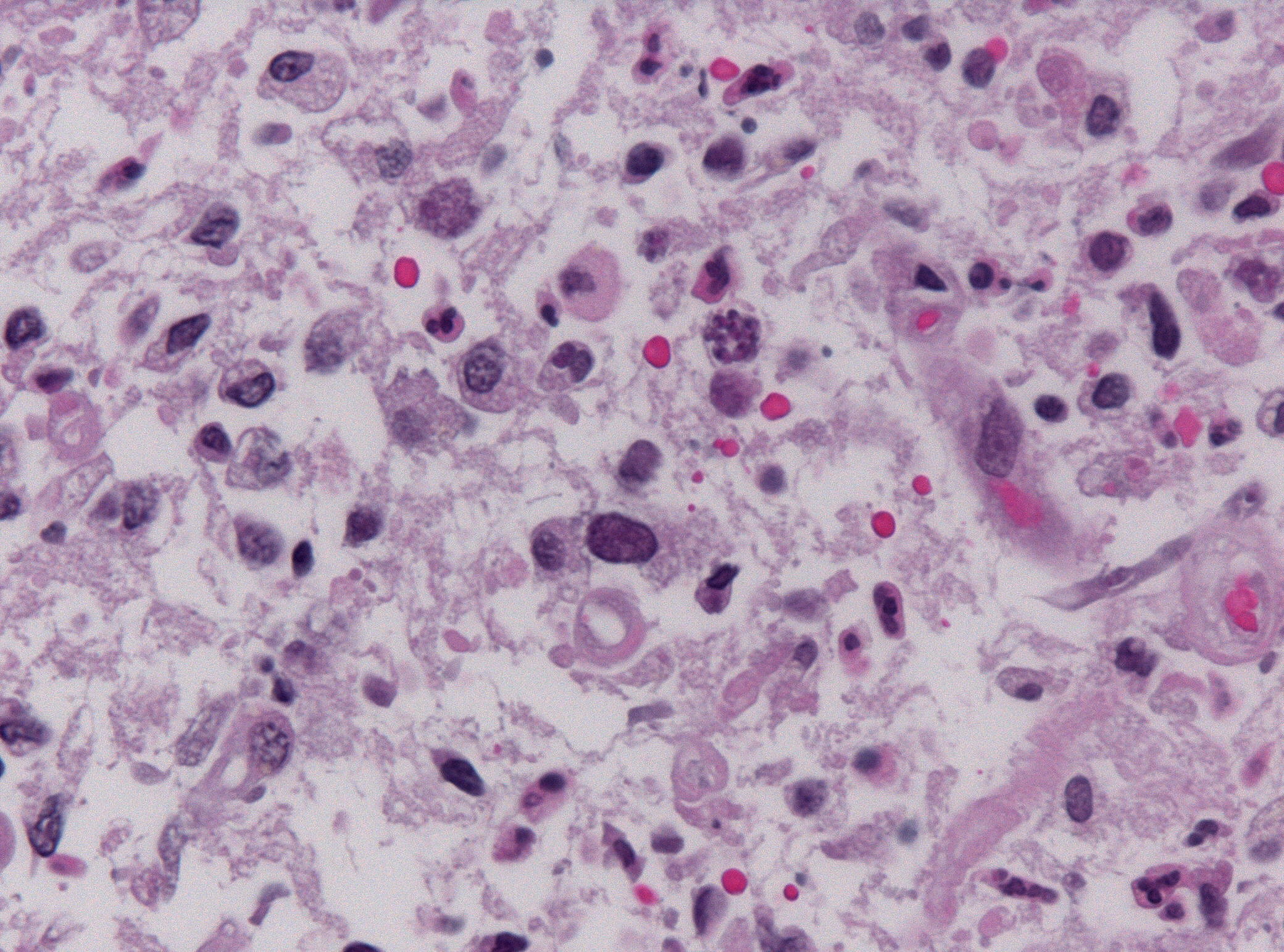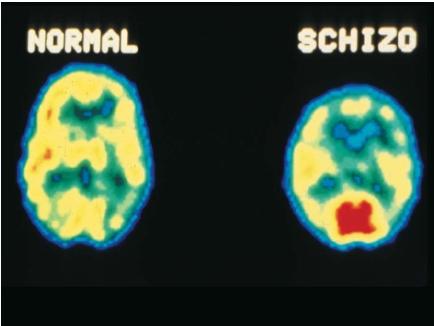 Ярослав Флегр нет псих. И все же, в течение многих лет, он подозревал, что его ум был захвачен паразитов, которые вторглись в его мозг. Так плодовитым биолог взял его научно-фантастический предчувствие в лабораторию. То, что он сейчас открывать поразит вас. Может, перевозимые домашних кошек крошечные организмы быть ползучей в наши мозги, заставляя все от автомобильных аварий с шизофренией?
Ярослав Флегр нет псих. И все же, в течение многих лет, он подозревал, что его ум был захвачен паразитов, которые вторглись в его мозг. Так плодовитым биолог взял его научно-фантастический предчувствие в лабораторию. То, что он сейчас открывать поразит вас. Может, перевозимые домашних кошек крошечные организмы быть ползучей в наши мозги, заставляя все от автомобильных аварий с шизофренией? Атлантический - Кэтлин Маколайфф
Никто не станет обвинять Ярослав Флегр быть конформистом. Себя называет "неаккуратным комод," 53-летний чешский ученый имеет созерцательный воздух кем-то по привычке в раздумье, и его до сих пор-юношеского, с квадратной челюстью лицо в обрамлении вьющихся рыжих волос, которая окружает его голову, как кольцо огня.
 Конечно мышление Flegr является раздражающе нетрадиционным. С начала 1990-х годов, он начал подозревать, что одноклеточные паразиты в семье простейших тонко манипулировать его личность, в результате чего он себя в странных, часто самоубийственных способов. И если это было возиться с его умом, рассуждал он, это был, вероятно, делает то же самое для других.
Конечно мышление Flegr является раздражающе нетрадиционным. С начала 1990-х годов, он начал подозревать, что одноклеточные паразиты в семье простейших тонко манипулировать его личность, в результате чего он себя в странных, часто самоубийственных способов. И если это было возиться с его умом, рассуждал он, это был, вероятно, делает то же самое для других. Паразит, который выделяется кошек в их фекалиях, называется Токсоплазма (T.gondii, или Toxo для краткости) и является микроб, который вызывает токсоплазмоз-причину беременные женщины сказали, чтобы избежать ящики для мусора кошек. С 1920-х годов, врачи признали, что женщина, которая заражается во время беременности может передавать болезнь плода, в некоторых случаях приводит к серьезному повреждению мозга или смерти. Т. гондий также представляет серьезную угрозу для людей с ослабленным иммунитетом: в первые дни эпидемии СПИДа, прежде были разработаны хорошие антиретровирусные препараты, она была виновата в слабоумия, что, страдающего много пациентов в конечной стадии этого заболевания. Здоровые дети и взрослые, однако, как правило, не испытывают ничего хуже, чем короткие гриппоподобные симптомы, прежде чем быстро отбивается от простейших, которые после этого дремлет клетки-либо внутри мозга, по крайней мере, это стандартная медицинская мудрость.
Эволюционный биолог Карлова университета в Праге, Flegr проводит эту теорию в течение многих десятилетий в относительной безвестности. Потому что он борется с английского и не так много собеседник даже на своем родном языке, он редко ездит в научных конференциях. Это "может быть одной из причин, моя теория не лучше известных," говорит он. И, по его мнению, его взгляды могут пригласить глубокую оппозицию. "Существует сильное психологическое сопротивление к тому, что поведение человека может быть под влиянием какой-то глупой паразита," говорит он. "Никто не любит чувствовать себя как марионетка. Рецензенты [из моих научных работ], возможно, были оскорблены. "Еще более очевидная причина для сопротивления, конечно, является то, что понятия Flegr звучат ужасно много, как бахрома науки, прямо там с НЛО и претензий дельфинов телепатически общающихся людей.
 Но после многих лет игнорируются или со скидкой, Flegr начинает получать респектабельность. Психоделический как его требования не звучало, многие исследователи, в том числе таких крупных имен в неврологии как Стэнфорда Роберт Sapolsky, думаю, что он вполне может быть на что-то. Flegr в "исследования также проводятся, и я вижу, нет оснований сомневаться в их," Sapolsky говорит мне. Действительно, последние данные от лабораторных и британских групп Sapolsky предполагают, что паразит способен чрезвычайных махинаций. Т. гондий, сообщает Sapolsky, может превратить сильное врожденное отвращение крысы, кошкам в аттракцион, заманивая его в пасть его No. 1 хищника. Еще более удивительно то, как она делает это: организм повторно едет цепей в частях мозга, которые имеют дело с такими первобытными эмоциями, как страх, тревога, и сексуальное возбуждение. "В целом," говорит Sapolsky, "это дикий, причудливый нейробиологии." Другой академический тяжеловес, который берет Flegr серьезно это шизофрения эксперт Е. Фуллер Торри, директор Стэнли-исследовательского института медицинской, в штате Мэриленд. "Я восхищаюсь Ярослав для этого [этого исследования]," говорит он. "Очевидно, что это не политкорректно, в том смысле, что не многие лаборатории делают это. Он сделал это в основном самостоятельно, с очень небольшой поддержкой. Я думаю, что это имеет глядя на. Я считаю, это совершенно достоверными ".
Но после многих лет игнорируются или со скидкой, Flegr начинает получать респектабельность. Психоделический как его требования не звучало, многие исследователи, в том числе таких крупных имен в неврологии как Стэнфорда Роберт Sapolsky, думаю, что он вполне может быть на что-то. Flegr в "исследования также проводятся, и я вижу, нет оснований сомневаться в их," Sapolsky говорит мне. Действительно, последние данные от лабораторных и британских групп Sapolsky предполагают, что паразит способен чрезвычайных махинаций. Т. гондий, сообщает Sapolsky, может превратить сильное врожденное отвращение крысы, кошкам в аттракцион, заманивая его в пасть его No. 1 хищника. Еще более удивительно то, как она делает это: организм повторно едет цепей в частях мозга, которые имеют дело с такими первобытными эмоциями, как страх, тревога, и сексуальное возбуждение. "В целом," говорит Sapolsky, "это дикий, причудливый нейробиологии." Другой академический тяжеловес, который берет Flegr серьезно это шизофрения эксперт Е. Фуллер Торри, директор Стэнли-исследовательского института медицинской, в штате Мэриленд. "Я восхищаюсь Ярослав для этого [этого исследования]," говорит он. "Очевидно, что это не политкорректно, в том смысле, что не многие лаборатории делают это. Он сделал это в основном самостоятельно, с очень небольшой поддержкой. Я думаю, что это имеет глядя на. Я считаю, это совершенно достоверными ". Более того, многие эксперты считают, Т. гондий может быть далеко не единственным микроскопического кукольника, способного тянуть наши струны. "Я думаю, что есть очень большое количество других примеров этого происходит у млекопитающих, с паразитами мы никогда даже не слышали о", говорит Sapolsky.
 Знакомый для большинства из нас, конечно, является вирус бешенства. На грани убийства собаки, летучей мыши или другого теплокровного хозяина, это мешает животное в ярость, одновременно переходе от нервной системы к слюне существа, гарантируя, что когда хозяева укусы, вирус будет жить в новый носитель. Но в стороне от бешенства, рассказы паразитов реквизиции поведение больших мозгом млекопитающих встречаются редко. В гораздо более распространенными жертвами паразитарные ум контроль, по крайней мере те, о которых мы знаем, рыба, ракообразные, и легионы насекомых, в соответствии с Дженис Мур, поведенческого биолог Университета штата Колорадо. "Мухи, муравьи, гусеницы, осы, вы называете его, есть грузовики с ними ведут себя странно в результате паразитов", говорит она.
Знакомый для большинства из нас, конечно, является вирус бешенства. На грани убийства собаки, летучей мыши или другого теплокровного хозяина, это мешает животное в ярость, одновременно переходе от нервной системы к слюне существа, гарантируя, что когда хозяева укусы, вирус будет жить в новый носитель. Но в стороне от бешенства, рассказы паразитов реквизиции поведение больших мозгом млекопитающих встречаются редко. В гораздо более распространенными жертвами паразитарные ум контроль, по крайней мере те, о которых мы знаем, рыба, ракообразные, и легионы насекомых, в соответствии с Дженис Мур, поведенческого биолог Университета штата Колорадо. "Мухи, муравьи, гусеницы, осы, вы называете его, есть грузовики с ними ведут себя странно в результате паразитов", говорит она. Рассмотрим Polysphincta gutfreundi, паразитический оса, что хватается за державу паука и придает крошечный яйцо в его живот.Червеобразный личинка выходит из яйца, а затем выпускает химикаты, которые подскажут паука отказаться ткачество свою знакомую спиральную паутину и вместо раскрутки своего шелковую нить на специальном шаблоне, который будет содержать кокон, в котором личинка созревает."Обладал" паук даже крючком определенную геометрическую конструкцию в сетку, маскируя кокон от хищников осы.
















